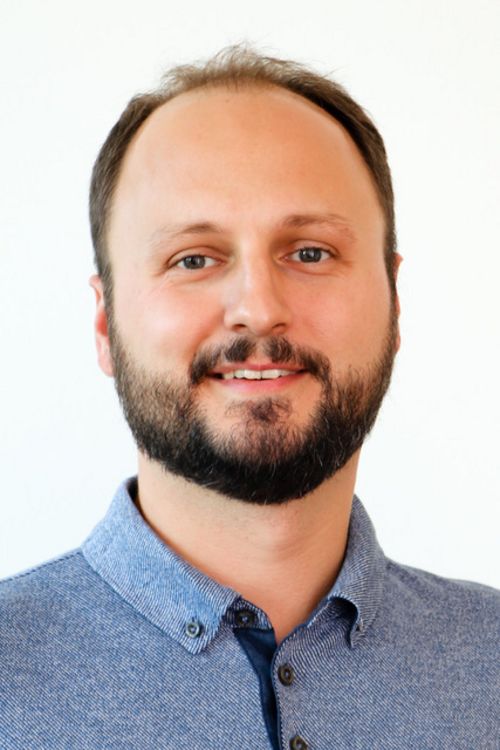| Agenda | Vortragende | LIT /Institut |
| A “Soft” Future: Electronic and Robotic Systems Inspired by Nature | Univ.-Prof. DI Dr. Martin Kaltenbrunner | Soft Materials |
| Mastering Variability and Evolution | Univ.-Prof. Mag. Dr. Rick Rabiser, öffnet eine externe URL in einem neuen Fenster | Software Engineering in Cyber-Physical Systems |
Diese Veranstaltung findet ausnahmslos in englischer Sprache statt.
LIT Antrittsvorlesungen
Datum
2. März 2020
Uhrzeit
16.00 Uhr
Adresse
Johannes Kepler Universität Linz
Altenberger Straße 69
4040 Linz
Standort
Uni-Center, Festsaal A
Nature inspires a wide spectrum of bio-mimetic systems ranging from soft robotic actuators to perceptive electronic skins that enhance and support our life. The growing demand on assistive, medical and bioelectronic technologies however raises concerns on the ecological footprint of these emerging platforms, as they are often designed for a defined, limited operational lifetime. Introducing a key feature essential to nature - biodegradability - will enable soft electronic and robotic devices that reduce (electronic) waste and are paramount for a sustainable future.
We develop materials and methods such as tough yet biodegradable biogels for soft systems that facilitate a broad range of applications, from transient wearable electronics to metabolizable soft robots. These embodiments are highly stretchable, are able to heal and are resistant to dehydration. Electronic skins that measure pressure, strain, temperature and humidity serve as human-friendly on-skin interfaces or equip robotic systems with sensory feedback. Such advances in the synthesis of biodegradable materials that do not compromise in performance when compared to their non-degradable counterparts will bring bionic soft systems a step closer to nature and enable human-friendly technologies with reduced ecological footprint.
Univ.-Prof. Dr. Martin Kaltenbrunner, LIT Soft Materials Lab

The world of computing is changing at an accelerated pace. Points in question such as big data, cloud-based computing, internet of things, cyber-physical systems, and machine learning are often considered the key elements of so-called digitalization. While software and software engineering continue to play the key role in research, education and real-world practices are included in all of these topics. In today's software-intensive and cyber-physical systems, many different system variants are commonly developed (and they evolve over time) to address a wide range of application contexts or customer requirements. The number of variation points, variants, and dependencies in industrial systems easily reaches staggering levels, often resulting in situations where no one has a comprehensive overview of the available variability. This presentation will discuss approaches on how to deal with variability and evolution in software-intensive and cyber-physical systems that have resulted from conducting over 14 years of base-knowledge and applied research together with industrial companies as well as in academia.
Univ.-Prof. Mag. Dr. Rick Rabiser, LIT – Cyber-Physical Systems Lab
